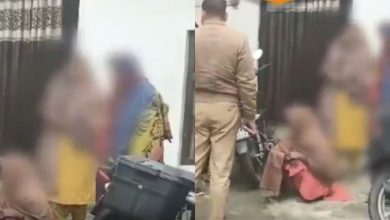Rajasthan Congress slams BJP for using anti-conversion law to exploit Hindu-Muslim divide
 Jaipur: Rajasthan Congress chief Govind Singh Dotasra has sharply criticised the BJP-led state government for introducing the anti-conversion bill, calling it a political tool to polarise Hindus and Muslims for electoral gain.
Jaipur: Rajasthan Congress chief Govind Singh Dotasra has sharply criticised the BJP-led state government for introducing the anti-conversion bill, calling it a political tool to polarise Hindus and Muslims for electoral gain.
According to Kashmir Media Service, in a statement, Dotasra said, “The conversion bill is a ploy to create division between Hindus and Muslims for political advantage. When the bill is presented in the Assembly, we will make our case, but this move reflects the BJP’s strategy to exploit the Hindu-Muslim issue for votes”.
He pointed out that existing legal provisions already address such concerns, adding that the BJP was diverting public attention from more pressing issues by reigniting this debate.
On the BJP government’s decision to appoint administrators in municipal bodies ahead of elections, Dotasra argued that it was an attempt to bypass elected representatives. He also criticised the delay in preparations for municipal and Panchayat elections, including voter lists and reservations, to justify the appointment of administrators.
Dotasra said that the BJP is replicating the “Gujarat model” in Rajasthan, sidelining elected officials and allowing bureaucrats to take control. He concluded by saying the BJP is failing to deliver on its promises and urged the state government to focus on governance rather than divisive politics.
It is noteworthy that anti-conversion laws have been enacted in several Indian states to address alleged forced conversions, a concern frequently voiced by Hindu extremists who claim minorities are coercing Hindus into converting. The proposal for such a law in Rajasthan follows the BJP’s victory in last December’s state elections. Though presented as a safeguard against coercion, these laws are criticized for broadly criminalizing minority religious practices, effectively outlawing conversions. Critics argue that anti-conversion laws amount to structural violence, disproportionately affecting religious minorities, particularly Muslims and Christians, in India.








